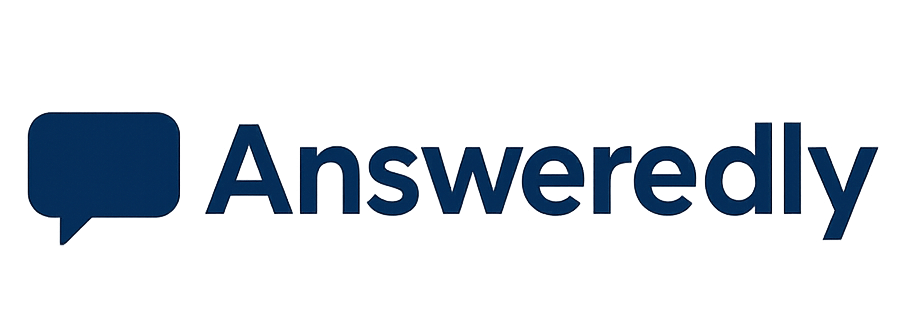Reply to “Talk to You Soon” or “Talk to You Tomorrow”
“Talk to you soon” is a friendly, informal way to end a conversation, signaling that you intend to connect again later. It’s a polite sign-off implying that you enjoyed talking and are open to continuing the chat in the near future. In casual settings among friends or family, an enthusiastic reply is perfect. In more professional or formal contexts, a more reserved but positive response is better. Below we list dozens of sample replies you can use in various situations – from casual conversations and text chats to work calls and dates.
Casual and Friendly Replies
When a friend or family member says “talk to you soon,” feel free to keep your response upbeat and informal. You can echo their enthusiasm or show that you’re looking forward to the next chat. For example:
- Absolutely! (I’ll talk to you soon.)
- Can’t wait! 😊
- Looking forward to it!
- Sounds like a plan!
- Sure thing!
- Definitely!
- You bet!
- Talk soon!
- See you soon!
- Take care, talk to you soon.
- I’ll chat with you later.
Each of these responses is short, friendly, and warm. They match the casual tone of “talk to you soon” and let the other person know you’re eager to continue the conversation. Emojis or exclamation points can also help convey excitement (e.g. “Can’t wait! 😄”).
Professional or Formal Replies
In a work or formal context, you might want to sound courteous and clear while still acknowledging the intent to reconnect. Instead of a casual “sure” or “okay,” you can use a professional tone. For instance, you might say:
- Certainly, I look forward to our next discussion.
- Absolutely, I will be ready for our meeting.
- Of course. Thank you, I’ll speak with you soon.
- Certainly, [Name]. I’ll keep you updated.
- Will do, [Name]. Expect a follow-up from me shortly.
- Certainly. I’ll connect with you on this soon.
- Understood, I look forward to speaking again soon.
- Of course, thank you. We’ll continue this conversation later.
- Understood. I’ll be in touch.
- Thank you. I appreciate your time and we’ll talk soon.
These replies use respectful language and may include names or titles. Phrases like “I look forward to our next conversation” or “I’ll connect with you soon” are formal variations on “talk to you soon”. They make it clear that you acknowledge the planned follow-up professionally.
Texting and Quick Chat Replies
In instant messages or texts, responses can be very short or use common abbreviations. You might even reply with an emoji or acronym. For example:
- TTYL! (short for “talk to you later” – a common texting abbreviation)
- 👍 (thumbs-up emoji to acknowledge)
- Sure, thanks!
- Okay, bye for now!
- Talk soon 🙂
- Catch you later!
- Sounds good – ttyl!
Casual texts don’t need to be fancy. A quick “ttyl” (talk to you later), a thumbs-up emoji, or a simple “sure” works fine. According to Merriam-Webster, “TTYL” stands for “Talk to You Later” and is widely understood in chats. Any short, friendly acknowledgement will do the trick, since text chats tend to be more relaxed.
Affectionate and Personal Replies
When someone close – like a partner, family member, or dear friend – says “talk to you soon,” you can add warmth or humor. For example:
- Love you too, talk to you soon!
- Can’t wait to hear your voice again.
- Sweet dreams, talk soon!
- I’ll be thinking of you.
- Miss you already – talk to you later!
- You got it, [nickname]!
- Talk to you soon, take care.
- Can’t wait! Bye for now.
- Right back at you, handsome/beautiful 😉
- (If ending a call) “Bye! Stay safe, I’ll call you later.”
These responses mix affection or playfulness with the promise of talking again. Use nicknames or emojis if that’s part of your usual style. The key is to mirror the personal tone of the conversation – for instance, if they said “talk to you soon” in a loving way, you can reply equally warmly (e.g., “Love you, talk soon!”).
READ: What Does “ONG” Mean
Short Polite Acknowledgements
Sometimes you just want a brief but polite reply, especially if you’re busy. In that case, a simple acknowledgment works:
- Thanks, talk soon.
- Will do – talk to you later.
- Sounds good, bye for now.
- Understood. Talk soon.
- Okay, I’ll talk to you later.
- Alright, thank you!
- Great, I’ll be ready.
- Bye, talk to you soon.
These phrases are neutral and courteous. They don’t add much enthusiasm, but they clearly signal that you heard “talk to you soon” and that you plan to follow up. This can be useful if you want to keep things efficient and professional, or if you’re just about to leave the conversation yourself.
In any conversation, replying to “talk to you soon” is usually straightforward. Choose a response that matches the tone and relationship you have with the other person. Friends and family usually expect a cheerful “Can’t wait!” or “Sounds good!”, while in a workplace setting a polite “Certainly, I look forward to our next conversation” fits best. The examples above cover many scenarios, but the general rule is to keep your reply friendly and consistent with how you normally speak to that person. With these tips and sample replies, you can confidently answer “talk to you soon” in any situation.
Discover more from Answeredly
Subscribe to get the latest posts sent to your email.







